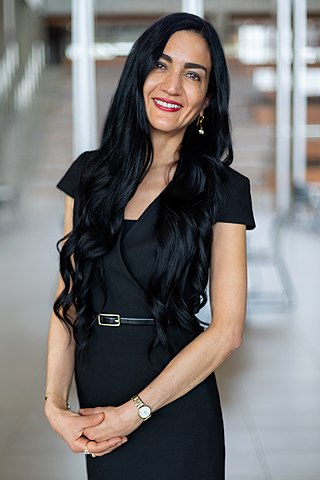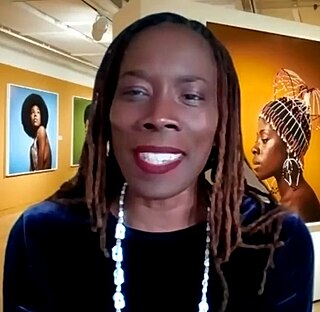
Parenting or child rearing promotes and supports the physical, cognitive, social, emotional, and educational development from infancy to adulthood. Parenting refers to the intricacies of raising a child and not exclusively for a biological relationship.
Historical trauma or collective trauma refers to the cumulative emotional harm of an individual or generation caused by a traumatic experience or event.
Minority stress describes high levels of stress faced by members of stigmatized minority groups. It may be caused by a number of factors, including poor social support and low socioeconomic status; well understood causes of minority stress are interpersonal prejudice and discrimination. Indeed, numerous scientific studies have shown that when minority individuals experience a high degree of prejudice, this can cause stress responses that accrue over time, eventually leading to poor mental and physical health. Minority stress theory summarizes these scientific studies to explain how difficult social situations lead to chronic stress and poor health among minority individuals.
Transgenerational trauma is the psychological and physiological effects that the trauma experienced by people has on subsequent generations in that group. The primary mode of transmission is the shared family environment of the infant causing psychological, behavioral and social changes in the individual.

Mary Jane Rotheram-Borus is a licensed clinical psychologist and professor with the University of California, Los Angeles, Department of Psychiatry and Biobehavioral Sciences. Rotheram is the professor-in-residence in the Semel Institute for Neuroscience and Human Behavior. She is the Director of the Global Center for Children and Families at UCLA and the former director of the Center for HIV Identification, Prevention, and Treatment Services.

Tina Malti is a Canadian-German child psychologist of Palestinian descent. She currently holds an Alexander von Humboldt Professorship for Early Child Development and Health as the first child psychologist and female psychologist in the award's history. She directs the Alexander von Humboldt Research Group for Child Development as research chair at Leipzig University. She is also a professor of psychology at the University of Toronto and founding director of the Centre for Child Development, Mental Health, and Policy at the University of Toronto.
Velma McBride Murry is an American psychologist and sociologist, currently the Lois Autrey Betts Chair in Education and Human Development and Joe B. Wyatt Distinguished University Professor at Vanderbilt University. Her research has largely focused on resilience and protective factors for African-American families, and she has several publications in this area. In addition to her empirical research, she has contributed to several published books and used her experience to create two family-based preventative intervention programs.
Race-based traumatic stress is the traumatic response to stress following a racial encounter. Robert T. Carter's (2007) theory of race-based traumatic stress implies that there are individuals of color who experience racial discrimination as traumatic, and often generate responses similar to post-traumatic stress. Race-based traumatic stress combines theories of stress, trauma and race-based discrimination to describe a particular response to negative racial encounters.
Racial trauma, or race-based traumatic stress, is the cumulative effects of racism on an individual’s mental and physical health. It has been observed in numerous BIPOC communities and people of all ages, including young children. Racial trauma can be experienced vicariously or directly. It has been linked to feelings of anxiety, depression, and suicidal ideation, as well as other physical health issues.

Apryl A. Alexander is an American clinical and forensic psychologist who is an associate professor at the University of Denver. Alexander directs students at the Denver Forensic Institute for Research, Service and Training, and engages in clinical psychology practice. She is co-founder of the University of Denver's Prison Arts Initiative where incarcerated individuals engage in a therapeutic, educational arts curricula.
Mia A. Smith-Bynum a clinical psychologist who specializes in family science and is known for her research on mental health, parenting, family interactions, communication, and racial-ethnic socialization in ethnic minority families. Smith-Bynum is associate professor of Family Science in the School of Public Health at the University of Maryland, College Park, where she is also affiliated with the Maryland Population Research Center. She is Chair of the Black Caucus of the Society for Research in Child Development.

Brendesha Marie Tynes is an American psychologist who is a professor of Psychology and Education at the USC Rossier School of Education. Her research considers how young people engage with social media, and how this influences their socioeconomic and academic outcomes. Tynes is principal investigator on the Teen Life Online and in Schools Project, which studies race-related cyberbullying.
Diane Leslie Hughes is a developmental psychologist known for her research on racial-ethnic socialization, parent-child communication about discrimination and racism, interracial relationships, and the influence of racial ecology on people's experiences in social settings. She is Professor of Applied Psychology at the Steinhardt School of Culture, Education, and Human Development and co-director of the Center for Research on Culture, Development, and Education at New York University.
Angela M. Neal-Barnett is an American professor and child psychologist working at Kent State University in Kent, Ohio, US. Neal-Barnett's research and work focuses on supporting Black women and girls with anxiety.

Lillian Comas-Díaz is an American psychologist and researcher of multiethnic and multicultural communities. She was the 2019 winner of American Psychological Association (APA) Gold Medal Award for Life Achievement in the Practice of Psychology. In 2000, she received the APA Award for Distinguished Senior Career Contribution to the Public Interest.

Jessica Schleider is an American psychologist, author, and an associate professor of Medical Social Sciences at Northwestern University. She is the lab director of the Lab for Scalable Mental Health.
Joy D. Osofsky is a clinical and developmental psychologist, known for her research on infant mental health, how parents nurture their infants and children, and the repercussions that follow exposure to traumatic events and violence. Some of her notable work has examined the aftereffects of Hurricane Katrina, experiences of children raised in broken households, and the impact of the COVID-19 pandemic on communities. Osofsky is employed as a Professor of Pediatrics, Psychiatry, and Public Health at the Louisiana State University Health Sciences Center, and she is Head of the Division of Pediatric Mental Health at the Louisiana State University School of Medicine. Osofsky holds the Barbara Lemann Professorship of Child Welfare at LSU Health New Orleans.
Jessica Henderson Daniel is a psychologist and educator, known for her work on mental health in the Black community, racial trauma, and the effects of stress and violence on Black children and adolescents. Daniel was the first African American woman to lead the American Psychological Association (APA), serving her term as president of the organization in 2018.
The psychological impact of discrimination on health refers to the cognitive pathways through which discrimination impacts mental and physical health in members of marginalized, subordinate, and low-status groups. Research on the relation between discrimination and health became a topic of interest in the 1990s, when researchers proposed that persisting racial/ethnic disparities in health outcomes could potentially be explained by racial/ethnic differences in experiences with discrimination. Although the bulk of the research tend to focus on the interactions between interpersonal discrimination and health, researchers studying discrimination and health in the United States have proposed that institutional discrimination and cultural racism also give rise to conditions that contribute to persisting racial and economic health disparities.

Thema Simone Bryant, also known as Thema Bryant-Davis, is an American psychologist who is a professor of psychology at the Pepperdine University, where she directs the Culture and Trauma Research Laboratory. Her research considers interpersonal trauma and societal trauma of oppression. She was elected as the 2023 President of the American Psychological Association.







